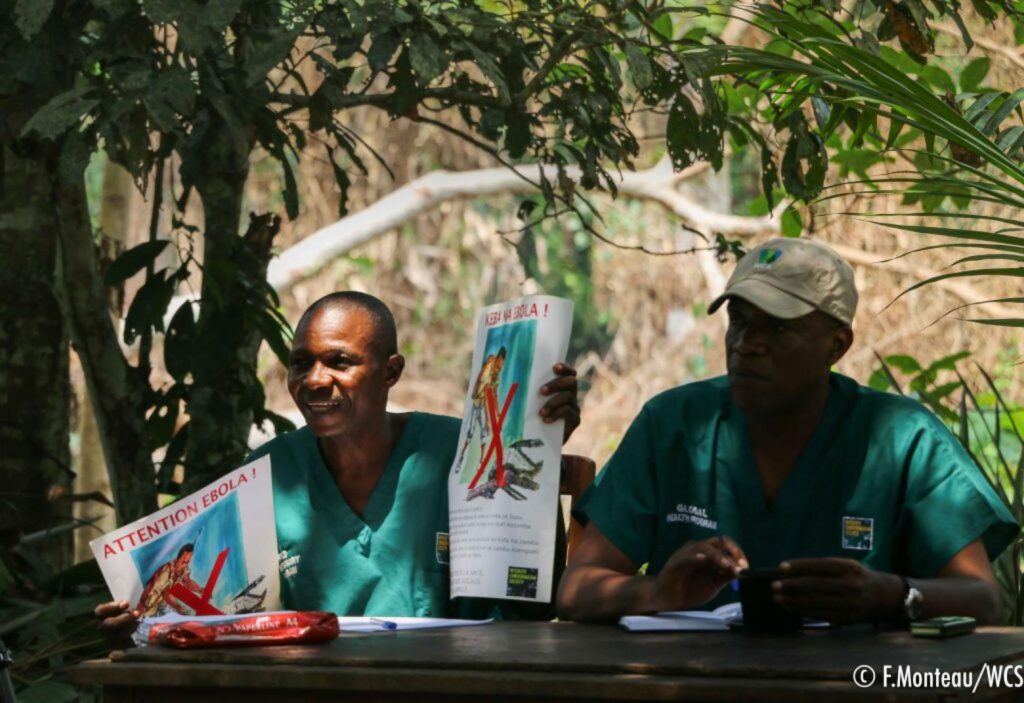In the Republic of the Congo, a 2005 Ebola Virus Disease (EVD) outbreak had a human mortality rate of more than 80%, and an estimated 5,000 great apes also died. In partnership with the government, WCS set up an early warning system for EVD, working with hunters, forest communities, and rangers to monitor wildlife health through a carcass monitoring and sampling network, whilst promoting best practices in disease risk reduction for these communities that rely on bushmeat as a source of protein. The community-based wildlife mortality monitoring network raises awareness among communities and covers more than 30,000 km2 in in northern Congo, an area home to 60% of the world’s gorillas. When a hunter reports a carcass, a response team travels to the site to safely collect samples from the carcass for testing. Once the sample is collected, it is sent to the national laboratory for analysis and the team returns to the reporting village with results and to reinforce health messages.


